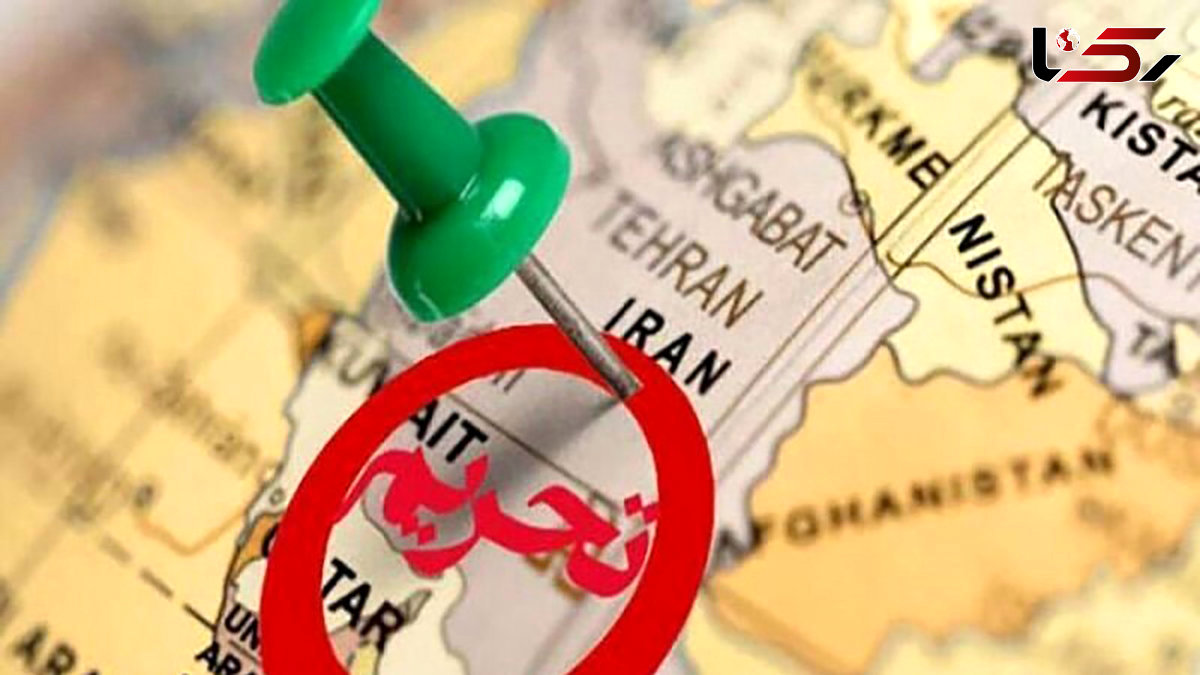Araqchi:
EU Sanctions Amount to Collective Punishment of Iranian People
Rokna Political Desk: Iran’s Deputy Foreign Minister for Economic Diplomacy has described the European Union’s latest sanctions as “collective punishment” of ordinary Iranians, arguing that they lack legal or moral foundation and directly target the livelihoods of millions.

The Deputy Foreign Minister for Economic Diplomacy, in a written commentary, stated that the European Union’s sanctions against Iran, imposed without legal justification, are designed to make life difficult for millions of ordinary people. He described the move as a form of “collective punishment.”
In a note entitled “Europe’s Sanctions Against Iran: Collective Punishment by Another Name”, Hamid Qanbari, Deputy Minister of Foreign Affairs for Economic Diplomacy, criticized Western sanctions policy following the activation of the so-called “snapback mechanism,” which Tehran has previously denounced as lacking both legal and ethical grounds.
Sanctions and resolutions that had been lifted under the 2015 nuclear deal were reimposed on Iran as of September 28, following the enforcement of this mechanism. Some countries, including the United Kingdom, introduced additional sanctions in the wake of the move.
The European Council issued a statement outlining which individuals and entities in Iran’s trade, banking, transport, and energy sectors would be subject to EU sanctions.
In his commentary, published on his Telegram channel, Qanbari wrote:
“At the end of September 2025, the European Union adopted a new package of sanctions against Iran. On the surface, these regulations may appear to be just another technical coordination – pages of provisions, annexes, and references. But when you actually read them line by line, you realize what they truly mean: shutting down the vital arteries of an entire nation.”
Qanbari explained:
“Article 11 bans the import of oil from Iran. Article 13 does the same for petrochemical products. Article 14(a) targets natural gas. Taken together, these are not just ‘sectors of the economy’ – they are the country’s principal sources of revenue. These revenues pay for medicines in hospitals, wheat that reaches the dinner table, and the fuel that keeps homes warm. And the regulations do not stop there; clauses 30 and 30(a) make even ordinary financial transfers nearly impossible, while Article 35 prohibits insuring trade with Iran. This is like locking the doors and then throwing away the key.”
The Deputy Minister added:
“It is true that so-called humanitarian exemptions exist. The regulations state that food and medicine can be imported with special licenses (Articles 26 and 27). But here lies a contradiction: if the revenues that are supposed to fund these imports are cut off, what use are such licenses? It is like emptying someone’s wallet and then telling them, ‘You are allowed to buy bread.’”
He emphasized that humanitarian exemptions in the EU sanctions are of little practical use.
The commentary continued:
“This is why these sanctions appear even harsher than the old ‘oil-for-food’ program in Iraq. At least there, limited oil sales were permitted to finance basic needs. Here, the main sources of revenue are completely blocked, while so-called humanitarian exceptions are so limited and bureaucratic as to be barely functional.”
The author argued:
“This is not merely an economic issue; it is a human rights issue. The Universal Declaration of Human Rights guarantees the right to food, health, and an adequate standard of living. The International Covenant on Economic, Social, and Cultural Rights says the same. Blocking a country’s ability to earn revenue in order to provide for these basic needs does not merely harm governments – it punishes ordinary people. This is what international law calls ‘collective punishment,’ which is prohibited even in wartime.”
Qanbari further warned about the timing of the sanctions:
“They come at a moment when Iran’s nuclear facilities have been bombed and destroyed. Thus, while infrastructure is being attacked from the air, the economy is simultaneously being suffocated on the ground. It is difficult to see how this action aligns with the principles of proportionality or distinction that international law requires.”
He argued that sanctions have failed in their political objectives but have succeeded in making life harder for ordinary people:
“Despite all this pressure, Iran has not collapsed. The economy has been affected but remains standing. People have found ways to adapt. The sanctions have failed in their political goal but have succeeded in tightening the lives of ordinary Iranians.”
In conclusion, the Deputy Foreign Minister strongly criticized the EU’s approach:
“The European Union calls these measures technical and legal. But once you strip away the legal cover, what remains is clear – a policy aimed at strangling the livelihoods of millions. There is nothing humanitarian about it.”
Send Comments